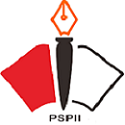The Implementation ff National Examination as The Direction of National Education Policy
Abstract
This study aims to find out how the implementation of the UN can be used as a continues policy material. This research is a literary research where researchers trace the literature related to the implementation of the UN and the direction of educational policy. The results of this study indicate that the implementation of the UN is still needed but with some notes. All supporting components and instruments must be ready and evenly distributed throughout the districts or cities that deal with the competence of teachers, supporting facilities, and public awareness of the importance of the quality of education. The National Exam encourages all parties to work hard in order to achieve better learning outcomes for learners, in accordance with the competency standards of graduates. UN has become a part of the national policy direction, which gave birth to the National-Standard School Examination, the curriculum changes from KTSP to K13, and the implementation of the Full Day School program as an effort to maximize the potential of learners in school activities.
Keywords
Full Text:
PDFReferences
Arikunto, S. (2002). Prosedur Penelitian Suatu Pendekatan Praktik. Jakarta: PT Rineka Cipta.
Asiah, S., & Rofieq, A. (2011). Analisis Kebijakan Ujian Nasional Tingkat Sekolah Menengah Kejuruan(SMK). Edukasi, 3(1), 75–92.
Baharuddin. (2010). Pendidikan dan Psikologi Perkembangan. Jogjakarta: Ar-Ruzz Media.
Basuki, S. (2013). Fullday School, Harus Proporsional Sesuai Jenjang dan Jenis Sekolah. Retrieved from Smkn1lmj.sch.id/dl/fuldyaschool.pdf.
Buchori, M. (2006). Evaluasi Pendidikan Konsep dan Aplikasi. Uhamka Press.
Delors, J. (2013). Learning The Treasure Within. , 2013. Unesco Publishing.
Dye, T. R. (1978). Understanding Public Policy. Englewood Cliffs. New Jersey: Prentice Hall.
Firmantyo, T., & Alsa, A. (2016). Integritas Akademik dan Kecemasan Akademik dalam Menghadapi Ujian Nasional pada Siswa. PSIKOHUMANIORA: Jurnal Penelitian Psikologi, 1(1), 1–11.
Ghofur, A. (2014). Mereposisi Mainstream dan Dampak Psikologi Ujian Nasional. Jurnal Ilmu Sosial Dan Humaniora, 1(1), 34–41.
Hayat, B. (2006). Assesment Berbasis Kelas. Puspendik Balitbang.
Hidayah, N. (2013). Ujian Nasional Dalam Perspektif Kebijakan Publik. Jurnal Pencerahan, 7(1), 35–40.
Hofferbert, R. I. (1974). The Study of Public Policy. Indianapolis: Bobbs-Merrill.
Jamaris, M. (2010). Orientasi Baru dalam Psikologi Pendidikan. Yayasan Penamas Murni.
Mardapi, D. (2009). Evaluasi Penerapan Ujian Akhir Sekolah Dasar Berbasis Standar Nasional. Jurnal Penelitian Dan Evaluasi Pendidikan, 13(6), 227–245.
Nasution, M. K. M. (2016). Menggali Potensi Ujian Nasional.
Safari. (2015). Ujian Nasional Sebagai Cermin Mutu Pendidikan dan Pemersatu Bangsa. Jurnal Pendidikan Dan Kebudayaan, 21(2), 101–114.
Silverius, S. (2010). Kontroversi Ujian Nasional Sepanjang Masa. Jurnal Pendidikan Dan Kebudayaan, 16(2), 194–205.
Soedijarto. (2000). Pendidikan Nasional sebagai Wahana Mencerdaskan Kehidupan Bangsa dan Membangun Peradaban Negara-Bangsa. CINAPS.
Soedijarto. (2008). Landasan dan Arah Pendidikan Nasional Kita. Kompas.
Sudijono, A. (2005). Pengantar Evaluasi Pendidikan. Raja Grafindo Persada.
Sudjana, N. (2005). Penilaian Hasil Proses Belajar Mengajar. Rosdakarya.
Sulistyaningsih, W. (2008). Full Day School dan Optimalisasi Perkembangan Anak. Yogyakarta: Paradigma Indonesia.
Sulistyo, G. H. (2007). Ujian Nasional (UN): Harapan, Tantangan, dan Peluang. WACANA, 9(1), 79–106.
Supa’at. (2013). Madrasah dan Ujian Nasional. Jurnal Nadwa: Jurnal Pendidikan Islam, 7(2).
Surapranata, S. (2004). Panduan Tes Tertulis; Implementasi Kurikulum 2004. Bandung: Rosdakarya.
Suwandi. (2013). Evaluasi Pelaksanaan Ujian Akhir Sekolah Berstandar Nasional (UASBN). Jurnal Pendidikan Teknologi Dan Kejuruan, 21(3).
Syafaruddin. (2008). Efektivitas Kebijakan Pendidikan. Rineka Cipta.
Tayibnapis, F. Y. (2000). Evaluasi Program. Rineka Cipta.
Tilaar. (2009). Kekuasaan dan Pendidikan. Rineka Cipta.
Wirawan. (2004). Profesi dan Standar Evaluasi. Uhamka Press.
Zakaria, T. R. (2004). Pendekatan-Pendekatan Pendidikan Nilai Dan Implementasi dalam Pendidikan Budi Pekerti. Jurnal Pendidikan Dan Kebudayaan, 6(26).
DOI: http://dx.doi.org/10.24042/atjpi.v9i1.2788
Refbacks
- There are currently no refbacks.
Copyright (c) 2018 Al-Tadzkiyyah: Jurnal Pendidikan Islam

This work is licensed under a Creative Commons Attribution 4.0 International License.

Al-Tadzkiyyah: Jurnal Pendidikan Islam is licensed under a Creative Commons Attribution 4.0 International License. Copyright © UIN Raden Intan Lampung. All rights reserved.








